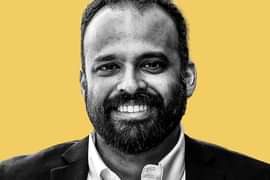
June 05, 2019
A call to reclaim food
Food is precious. Yet, access to healthy food isn’t easy—especially for people in the country’s poorest communities.by Rita Savard
If you had a choice between hunger and diabetes, which would you choose? Low-income families are often faced with this very question.
Food is precious. Yet, access to healthy food isn’t as easy as it should be—especially for people who live in the country’s poorest communities.
PA, says Flavia Vidal, English instructor and director of the Brace Center for Gender Studies, is uniquely positioned to address issues of food justice: where it comes from, how it is processed, who gets it, and how it gets there. The Academy’s ongoing commitment to sustainability, equity, inclusion, and wellness, has followed many students after graduation and into professions related to food.
In 2018, campus offices and academic departments—through the generosity of the Abbot Academy Fund—joined forces to foster student interest in food justice with a year’s worth of educational programing and events. The culmination was a March Food Justice Symposium that brought alumni food activists back to campus to share their stories.
Food justice is a grassroots movement that seeks to address the disparity in food accessibility; it’s also a response to a nationwide crisis where economic pressures have led to limited access of diverse, healthy, culturally relevant, affordable, and sustainably produced foods for low-income families.
“The kitchen can be the best place to fight for food justice,” said Hanover Vale ’15, a classically trained chef and current student at Dartmouth where she created Thirdspace, a program that combines food education, sustainability, and fine, affordable dining for students.
Sharing the Kemper stage in March with fellow alums Bing Broderick ’81, Sarah Chang ’05, Alexandra Donovan ’13, Felipe Storch de Oliveira ’12, and Taryn Wiens ’09, Vale told students that food justice isn’t just about access to healthy food—it’s also about educating people and changing their relationship to food.
“When talking about food, learning how to prepare it, and then sitting down to enjoy that meal, it bridges gaps and gets people thinking about food’s intersectionality—and the place it has in our lives,” Vale explains. “Everybody deserves access to nutritious food that they can enjoy.”
Whether we like it or not, food is political, added Chang, a program manager at Champions for Change—a California-based social marketing campaign designed to promote fruit and vegetable consumption and food security. Immigration, the price of oil, labor, insurance costs, the stock market, and the government shutdown all have an effect on the food we eat.
“The impact of this is reflected in our health outcomes, showing high instances of obesity and a rise in chronic diseases among the nation’s poorest,” Chang says. “This is not something we should stand for.”
Andover alums and educators hope students will continue the conversation.
“We’re trying to show the work we do at Andover has real world implications,” says LaShawn Springer, director of the Office of Community and Multicultural Development, a sponsor of the March conference. “We’re calling on students to reflect on their privilege and work toward achieving greater equity for all, because everyone should have access to healthy food, regardless of their income level.”
Categories: Campus Life
Other Stories
Andover’s vision for creating a pipeline of rising leaders.




